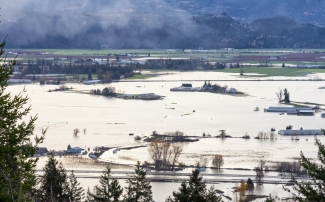
Campaign 2000 is a public education national network of organizations, with the goal of raising Canadian awareness and support for ending child poverty. They release annual national “report cards” with statistics about child poverty in Canada. In collaboration with Campaign 2000, First Call BC has released their 2021 provincial report card on child and family poverty. The report revealed that 1 in 5 children in BC live in poverty, with children of visible minority groups being disproportionately impacted. The risk of poverty was double to triple in groups of visible minority such as Arab, Korean, and West Asian children. Additionally, amongst new immigrant children, there is a significantly higher rate of poverty at 44.9% (First Call Child and Youth Advocacy Society, 2021). The report card also revealed high levels of on-reserve child poverty. Using data from 2019, there was a reported 40.9% child poverty rate on BC First Nations reserves. Interestingly, the statistics looking at rural versus urban reserves showed rural reserves having an 11.9% higher rate of childhood poverty (First Call Child and Youth Advocacy Society, 2021). Not only are these statistics concerning given BC’s rate of poverty is higher than the national average, but with recent extreme weather events such as flooding, childhood poverty has only been exacerbated.
In recent weeks, heavy rainfall has led to floods and mudslides in regions of BC such as Merritt, Abbotsford and Mission. Unfortunately, these events have displaced families from their homes and communities. A by-product of evacuating means that children have been stripped of the security and stability that comes from their homes, regularly attending school, and following their daily routines. Additionally, a recent CBC article has brought attention to the strain local food banks are under right now. Individuals affected by these extreme weather events are more reliant on resources from food banks, which are already in high demand under “normal” circumstances (CBC, 2021). Now that there’s more demand with COVID, floods, and mudslides, there needs to be long-lasting solutions to support marginalized individuals and communities. We encourage you to donate to your local food bank and support families and individuals in need!
This is particularly important because food insecurity can have significant impacts on the physical and mental health of children. One of the Social Exposome Cluster’s members, Dr. Jennifer Black, associate professor in the Faculty of Land and Food Systems at UBC, has focused her research on food insecurity and its impact on children and youth. Recently Dr. Black was a guest on Spice Radio’s “The Morning Buzz” to discuss the heightened food worries linked to worse mental health during the COVID-19 pandemic. Additionally, Dr. Black was a guest on the episode Creating Connections Through Food on the podcast “Ways of Knowing”. In 2019, Dr. Black was also instrumental in the rollout of the Fuel Up! school lunch program which aimed to make school lunches healthier, accessible and affordable for all families.
Listen to the podcast episode here: https://pwias.ubc.ca/ideas/podcasts/wok-ep-15-jennifer-black-on-creating-connections-through-food/
We encourage you to donate to your local food bank and support families and individuals in need!
References:
First Call Child and Youth Advocacy Society. (n.d.). 2021 BC Child Poverty Report Card - Campaign2000.ca. Retrieved December 7, 2021, from https://campaign2000.ca/wp-content/uploads/2021/11/BC-First_Call_Report….
CBC/Radio Canada. (2021, November 28). Parental guidance | many affected by B.C. floods turned to charity. but thousands of kids still do this daily | CBC News. CBCnews. Retrieved December 7, 2021, from https://www.cbc.ca/news/canada/british-columbia/parenting-child-poverty….
